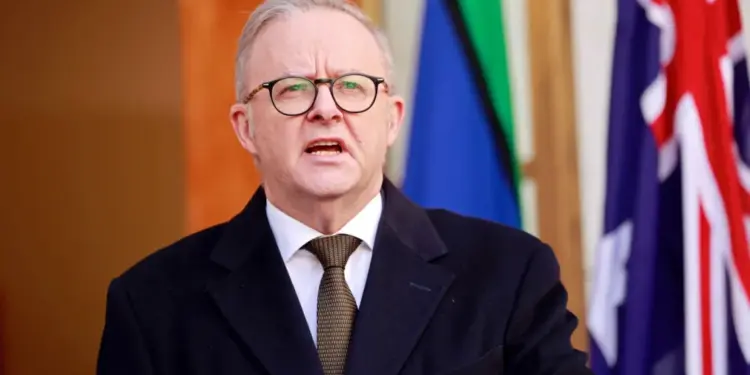Australian Prime Minister Anthony Albanese announced on Monday, August 11, that Australia will officially recognize the state of Palestine during the 80th session of the United Nations General Assembly in September. This decision is part of an international dynamic recently launched by several Western countries, including France, Canada and Spain.
A major decision in a tense context
For the head of the Labor Government, the recognition of a Palestinian state is “the best hope to get out of the cycle of violence in the Middle East”. “Peace cannot be sustainable as long as the Israelis and the Palestinians do not have each of their own state,” he told Canberra. He also stressed that he had obtained guarantees from the Palestinian authority so that Hamas has no place in this future state.
At the end of July, the French president Emmanuel Macron had announced his intention to recognize the Palestinian state, hoping to create a training effect. Canada followed, while the United Kingdom has conditioned its recognition to Israeli commitments, including a ceasefire. New Zealand, neighboring Australia, said it would assess the question before making a decision.
Stament on the Recognition of the State of Palestine. pic.twitter.com/mg0ec8buo1
– Anthony Albanese (@albomp) August 11, 2025
Israeli reaction
Faced with this evolution, Israel reacted strongly. Prime Minister Benjamin Netanyahu denounced a “shameful impulse” which, according to him, will only worsen the conflict. Israel’s ambassador to Australia also criticized Canberra, accusing the decision to strengthen Hamas’ position.
Today, nearly 75 % of UN member states recognize the Palestinian state, proclaimed in the 1980s. Since the start of the conflict in Gaza, a dozen countries have formalized this recognition, testifying to a major diplomatic turning point.








